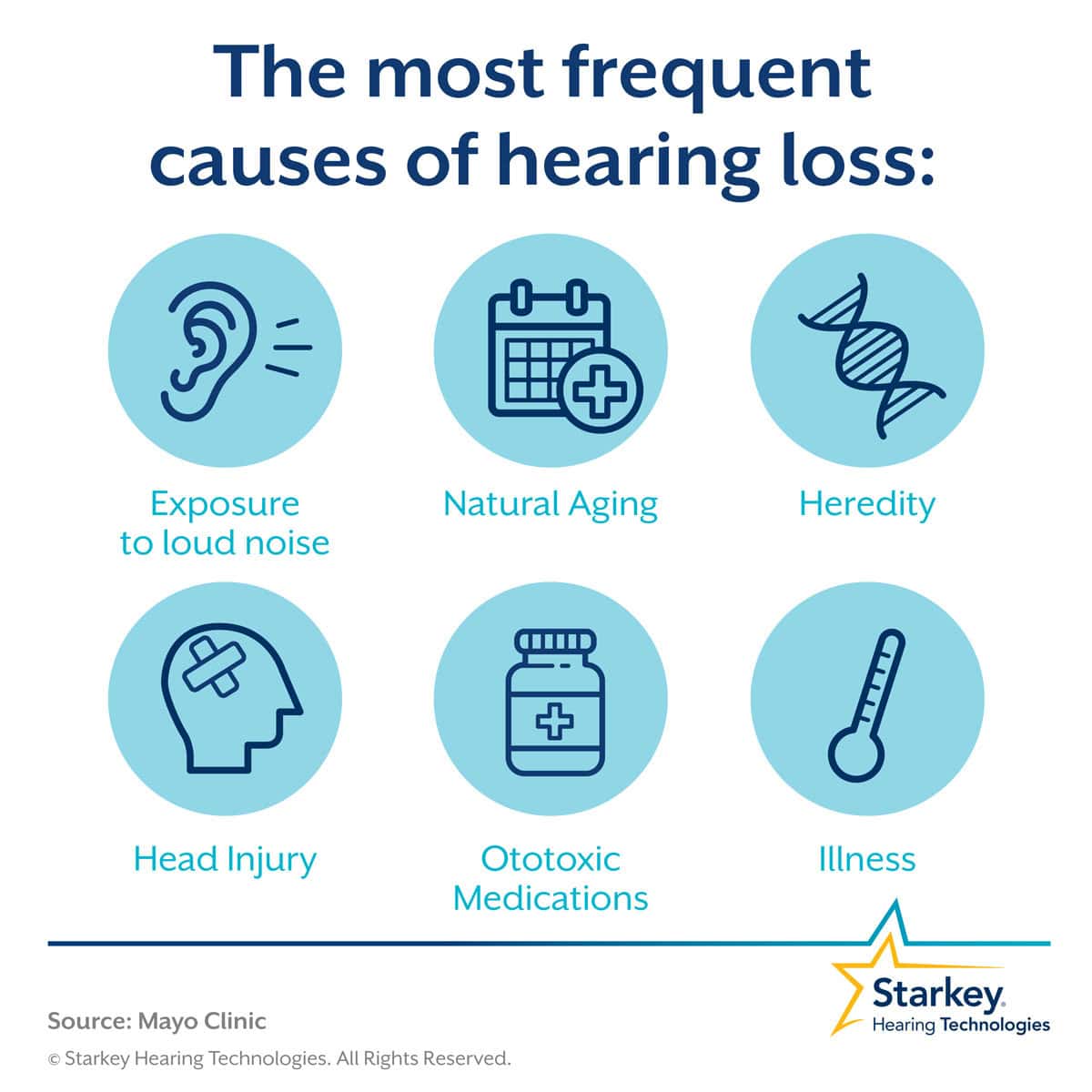Hearing Loss Overview
What is hearing loss?
Hearing loss is a medical condition which compromises the auditory process and one's hearing abilities. Hearing loss ranges from mild to profound, in grades of severity. It also takes on various forms (bilateral or unilateral) and can make it challenging to register specific frequencies.
How common is hearing loss?
After heart disease and arthritis, hearing loss is the most common medical condition in the US, affecting 48 million Americans.
Although hearing loss affects anyone at any age, it does affect older Americans disproportionately. About one in three people over age 65 and 50% of people over age 75 have hearing loss. An estimated 60 percent of the American workforce is experiencing a degree of hearing loss, and 60 percent of veterans returning from combat zones.

Types of hearing loss
Conductive Hearing Loss
Sensorineural Hearing Loss
Mixed Hearing Loss
These are only a few examples of the thousands of features available on hearing aids. If you are interested in learning more about types of hearing aids or features that may be perfect for you, our team at HEARtoday will be happy to oblige!
Signs of Hearing Loss
Hearing loss occurs slowly and gradually, and it may not be immediately noticeable that someone is experiencing hearing loss because it's an invisible disease. That is why hearing experts suggest a regular hearing test starting at age 50.
Here are some common signs of hearing loss, according to the Hearing Loss Association of America:
- Frequent requests that people repeat what they're saying.
- Having trouble in group conversations.
- A feeling that others are mumbling.
- Not hearing somebody speaking from behind you.
- Turning the TV and car radio volume higher than others.
- Experiencing trouble understanding others over the phone.
- Trouble hearing the alarm clock.
- Declining social invitations due to the above issues.
If these symptoms are present, scheduling a hearing test is vital to gauging your hearing ability.

What might happen if I don't treat my hearing loss?
Since hearing loss is an invisible disorder, it often goes unnoticed, and therefore many people become used to coping with the reduced hearing ability. The Hearing Loss Association of America states that from the time they first experience changes in their hearing before taking a hearing test and seeking treatment, people tend to wait an average of seven years.
Leaving untreated hearing loss may have some detrimental effects such as:
- Mental health: The risk of depression, stress, and anxiety rise with untreated hearing loss. Given that hearing loss interferes with speech recognition, people often socially withdraw and become alienated.
- Cognitive decline: Several studies have reported possible links between untreated loss of hearing and dementia. Researchers say the increased cognitive load can open up the risk of developing dementia as the brain fails to hear and tries to fill in sound gaps.
- Reduced earning power: People with untreated hearing loss have been found to have lower earning capacity in the workplace compared to their hearing peers. This could be because hearing loss interferes with our ability to communicate, and the more massive cognitive load put on our brains makes focus more strenuous.
- Diminished physical safety: Higher numbers of people with chronic hearing loss are hospitalized for injuries or falls.

If you think you or someone you love has hearing loss, then the first step is to take a hearing test. Hearing assessments test your current hearing skills and give crucial information about your hearing health.
Hearing loss is most frequently treated with the use of hearing aids that are fitted to address the particular type and severity of hearing loss. If there is a hearing loss detected after your hearing test, we will work with you to find the best hearing treatment to meet your needs.
